Search
Did you mean: Olympia?
Search Results
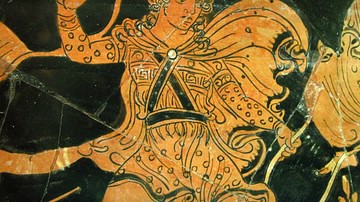
Definition
Orpheus
Orpheus is a figure from ancient Greek mythology, most famous for his virtuoso ability in playing the lyre or kithara. His music could charm the wild animals of the forest, and even streams would pause and trees bend a little closer to hear...
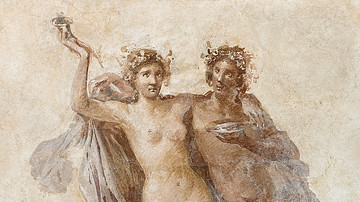
Definition
Ariadne
Ariadne is a figure in Greek mythology, best known for her role in helping Theseus to defeat the monstrous half-man half-bull Minotaur, her half-brother, and escape the Labyrinth, the torturous maze beneath the palace of Knossos in Crete...

Definition
Croesus
Croesus (r. 560-546 BCE) was the King of Lydia, a region in western Asia Minor (modern-day Turkey) and was so wealthy that the expression "as rich as Croesus" originates in reference to him. Best known for his wealth, he is also famous for...
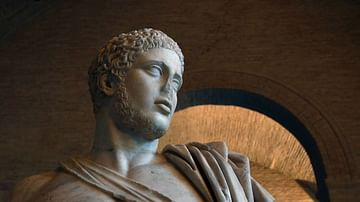
Definition
Diomedes
Diomedes is the king of Argos and a hero in Greek mythology. He was one of the leading warriors in the Trojan War, with the reputation of being gifted and strong in combat. He contributed 80 ships to the Greek forces in the Trojan War and...
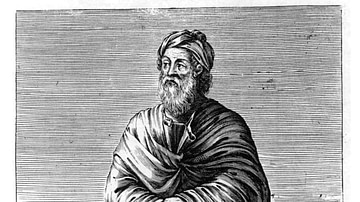
Definition
Xenophanes of Colophon
Xenophanes of Colophon (l. c. 570 to c. 478 BCE) was a Greek philosopher born 50 miles north of Miletus, a city famed for the birth of philosophy and home to the first Western philosopher, Thales of Miletus (l. c. 585 BCE). He is considered...
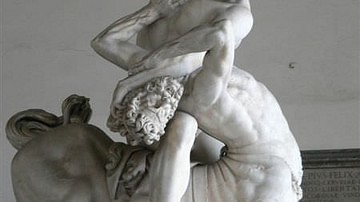
Definition
Centaur
A centaur was a creature from Greek mythology which was half-man and half-horse. The head, arms and torso of a centaur were human and joined at the waist to the body and legs of a horse. Centaurs represented barbarism and unbridled chaos...
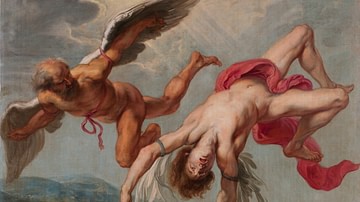
Definition
Daedalus
Daedalus is a figure from Greek mythology famous for his sculptures, clever inventions, and as the architect of the Minotaur's labyrinth on Crete. Daedalus is the father of Icarus who flew too close to the Sun on his artificial wings and...
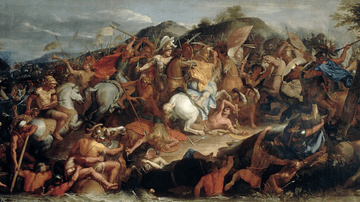
Definition
Battle of the Granicus
The Battle of the Granicus in May 334 BCE was Alexander the Great's (356-323 BCE) first major victory against the forces of the Achaemenid Empire. Alexander had crossed the Hellespont with his combined Macedonian and Greek forces and stepped...
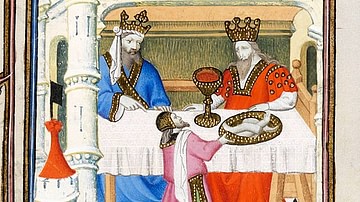
Definition
Atreus
Atreus was the mythical Greek king of Mycenae. He is perhaps best known for being the father of Agamemnon and Menelaus, two heroes of the Trojan War, as well as for the terrible curse placed upon his family. This was a hereditary curse, plaguing...
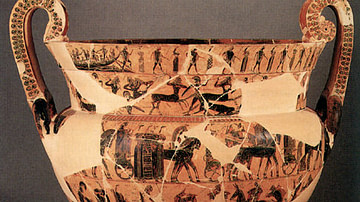
Definition
François Vase
The François Vase is a large Attic volute-krater dating to c. 570-565 BCE, and it is perhaps the example par excellence of the black-figure pottery style. An astonishing range of scenes and characters from Greek mythology cover the vase and...